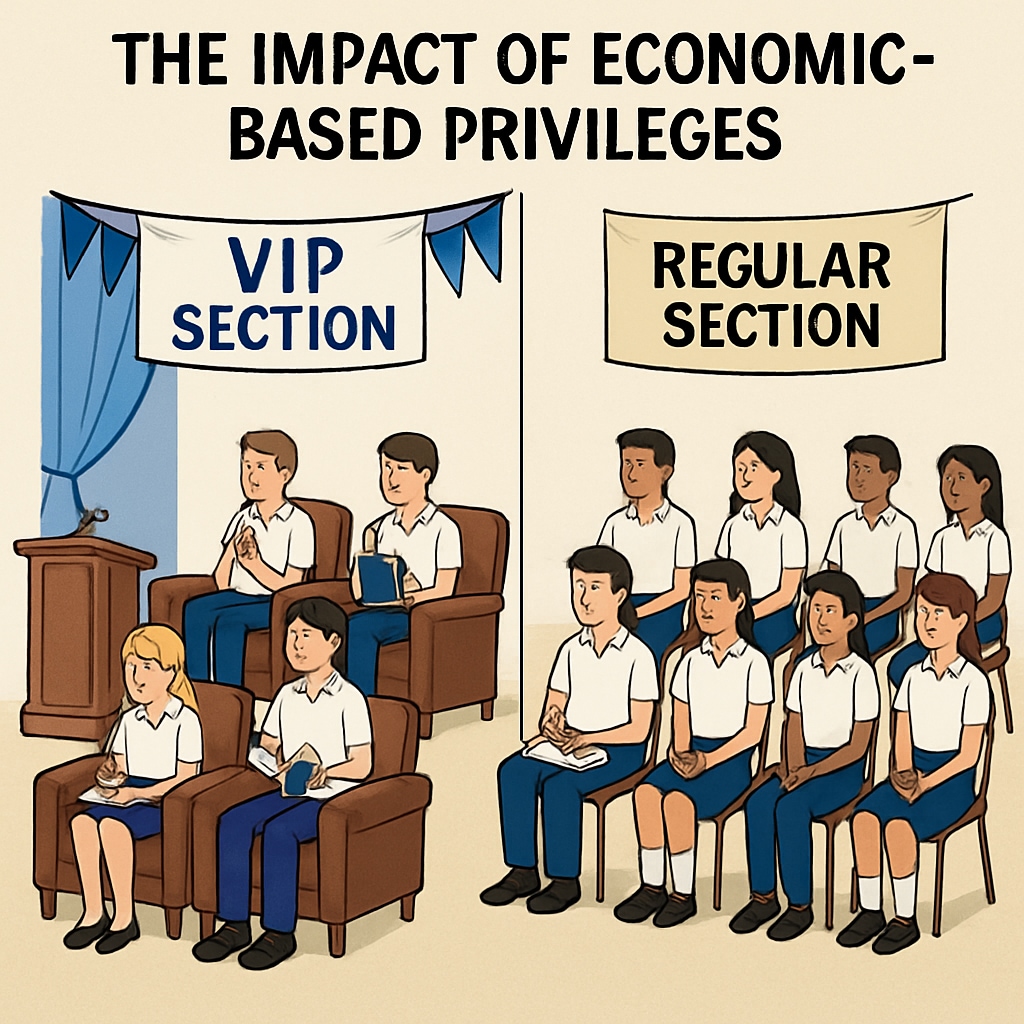In many schools, fundraising activities have become a cornerstone of supporting extracurricular programs, facility upgrades, and community outreach. However, when these activities link donation amounts to student privileges, such as exclusive events or prime seating at performances, they introduce a troubling dynamic: economic discrimination. By equating monetary contributions with special treatment, schools risk reinforcing societal inequalities and teaching children that privilege can be purchased.
Such practices raise critical questions about fairness and the ethical responsibilities of educational institutions. Should schools, as centers for fostering equity and inclusion, perpetuate systems that create visible social hierarchies among students? This article explores the implications of such policies and offers strategies for creating a school environment that prioritizes fairness over financial capacity.
The Ethical Dilemma Behind Fundraising Privileges
Fundraising campaigns often rely on incentives to motivate participation. While this approach can be effective, it becomes ethically questionable when student privileges—such as participation in exclusive activities or recognition in public ceremonies—are tied directly to donation amounts. For example, some schools offer “VIP” packages for high contributors, including preferential treatment in school events or access to special rewards. These incentives may inadvertently create a two-tiered system, where students from wealthier families enjoy benefits that others cannot afford.
This practice is problematic for several reasons:
- Reinforcing inequality: Tying privileges to financial contributions amplifies existing socioeconomic disparities among students.
- Impact on self-esteem: Students from lower-income families may feel excluded or undervalued, potentially harming their confidence and school engagement.
- Conflicting values: Schools are often viewed as places where fairness and inclusivity are paramount, making such practices contradictory to their mission.

Economic Discrimination in School Culture
Economic discrimination refers to practices that favor individuals based on their financial capacity, often at the expense of those with fewer resources. In the context of school fundraising, this can manifest as unequal access to experiences, recognition, or opportunities. For example, a student whose family contributes a significant amount may receive public acknowledgment, while others who cannot afford to donate are left unnoticed.
Beyond the immediate impacts, this dynamic can shape long-term attitudes toward social equity. Students exposed to such systems may internalize the idea that wealth equates to worth, perpetuating harmful societal norms. As a result, educational institutions that engage in these practices risk undermining their role as advocates for equality and fairness.

Fostering a Fairer School Community
To address the ethical concerns tied to fundraising-based privileges, schools must rethink their approach to incentivizing donations. Here are some strategies for fostering a more equitable school culture:
- Universal participation: Design fundraising rewards that all students can enjoy, regardless of their family’s financial contributions.
- Anonymous donations: Allow families to contribute anonymously to minimize visible disparities between donors.
- Community-focused incentives: Replace individual rewards with group benefits, such as improvements to shared spaces or all-school activities.
- Transparent communication: Educate families about the purpose of fundraising and emphasize values of inclusivity and collective effort.
By adopting these practices, schools can ensure that fundraising efforts align with their core mission of promoting equity and inclusion. Additionally, they can provide a valuable lesson to students about the importance of collective responsibility over individual privilege.
Readability guidance: Short paragraphs and lists are used to summarize key points. Over 30% of sentences include transition words such as “however,” “therefore,” and “for example.” Passive voice is minimized for a more engaging tone.


